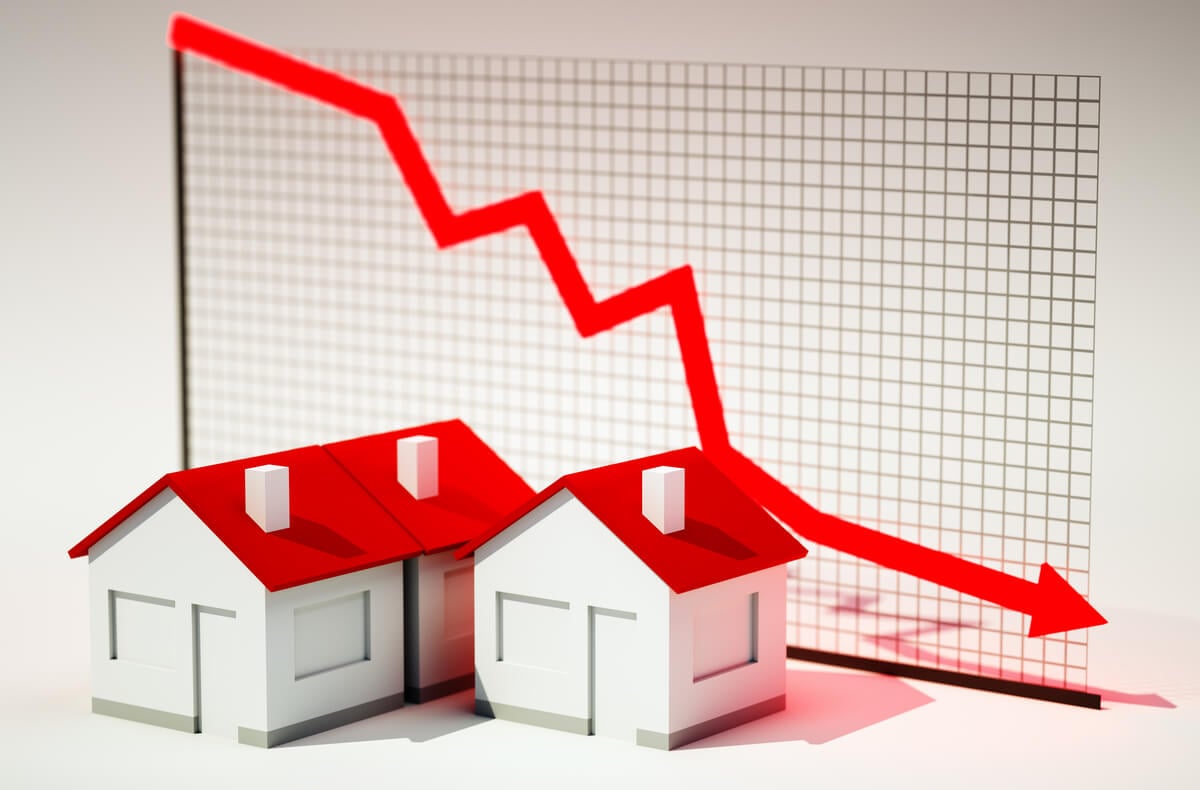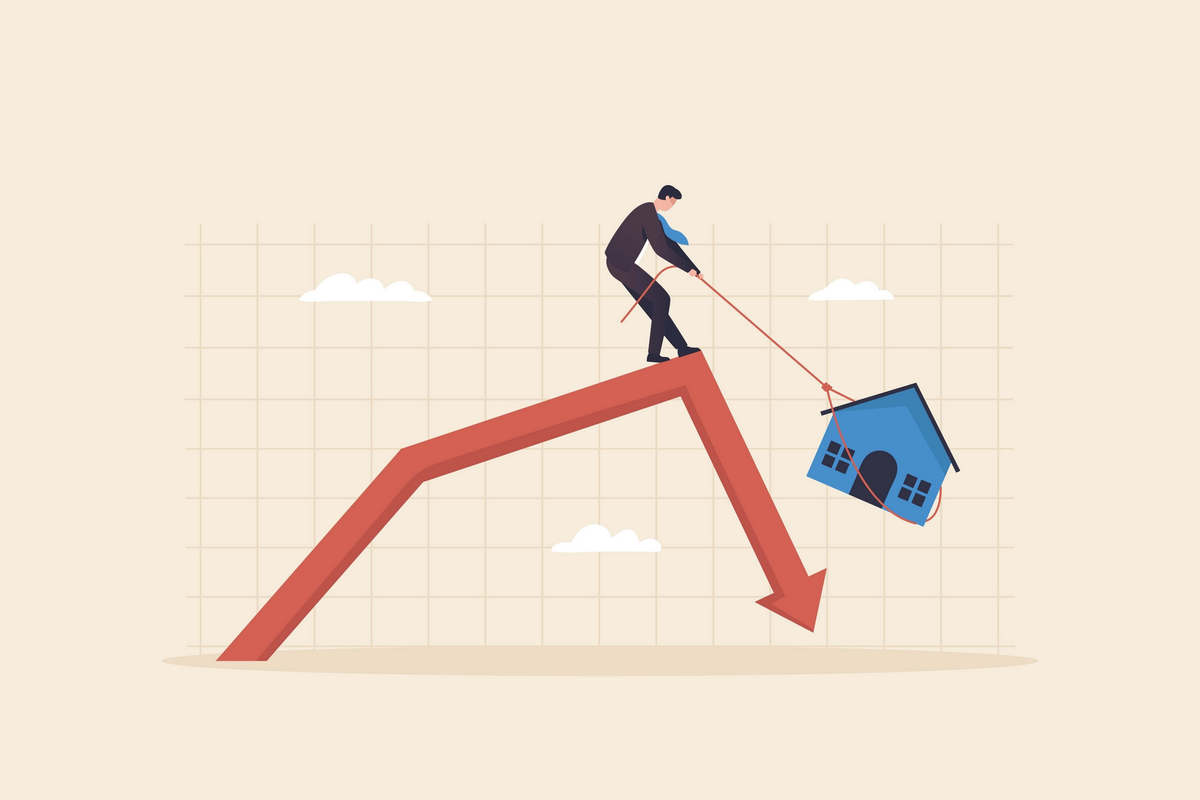The housing market will always have its ups and downs, but some fluctuations are much more dramatic than others. Homeowners and prospective buyers are often worried about the possibility of a market crash. These conditions can prevent new buyers from entering the real estate market and can create a massive financial burden for current homeowners.
It’s impossible to predict a market crash with complete accuracy. However, you can keep an eye out for signs of a decline in the market. Here are some key indicators of an upcoming real estate market crash:
One of the best but most overlooked indicators of a market crash is a tightening credit market. The condition of the credit market is an overall reflection of the economy, and as the market becomes more cautious, you can expect to see a major decline in real estate.
Credit markets are highly volatile. A sudden shift in the credit market can have a dramatic impact on both residential and commercial real estate investing. In the last decade, the credit market has been very generous. There has been a decline in risk aversion, skepticism, and due diligence. Investors have been more likely to buy a greater number of assets with lower quality.
This idea of abundance cannot last forever, though. There has recently been a much stronger fear of loss, so the market has become significantly tighter. Residential mortgages usually have a 30-year lifespan, so investors think long-term when lending. However, many commercial real estate loans have much shorter timelines. If investors can’t guarantee they’ll profit from these short-term loans, they won’t lend the money. As investors become more and more anxious about their risk of losing money, the real estate market will continue to slow down.
The credit market is largely driven by psychology. When investors feel a sense of prosperity, they lend more generously. When they have a fear of loss, they tighten up their lending practices. Then, as this creates a noticeable change in the market, more and more investors follow suit. This leads to a drastic and sudden downturn in the market.

Home Pricing Plateau
A clear plateau after a period of rapidly rising housing prices is a key sign that the market will take a downward turn. While this may not indicate a complete market crash, it often occurs when the market is shifting. Houses are an appreciating asset, but prices can’t dramatically climb year after year without a plateau or decline. When fewer people are able to buy, sellers lower their prices to generate interest.

Rising Interest Rates
Low-interest rates are a strong motivator for people to buy homes. As rates rise, the same homes become too pricey. High mortgage rates prevent many people from purchasing a property because the interest payments can become so unmanageable.
The overall economic conditions can play a role in rising interest rates. During times of economic concern, mortgage rates tend to decrease because investors feel that mortgage bonds are safer than other loans. When the economy is growing, though, lenders increase their rates. They only have so much capital to lend, and there’s typically a lot of demand for mortgages in a growing economy. The increased competition drives up interest rates.
Rising interest rates also contribute to the plateau of home prices. If a seller can’t get offers because rates are too high, they may lower their asking price to compensate. However, if the housing market crashes, banks become very cautious about mortgage lending. They may further increase rates to protect themselves, which results in sellers dropping their prices even more. Like the general economy, the real estate market constantly cycles through highs and lows and corrects itself when it reaches either extreme.

More Borrowers Paying PMI
Buyers who make a down payment of less than 20% typically have to pay private mortgage insurance (PMI), which protects their lender in case of foreclosure. An increase in buyers paying PMI is a warning sign for the real estate market for a couple of reasons. First, borrowers who pay PMI are not in as strong of a position as those who are exempt. When more people pay PMI, it indicates that borrowers may be purchasing homes before they’re financially ready.
Also, an increase in borrowers with PMI means that more homeowners are at risk of going underwater on their mortgages. If the market declines and you didn’t make a large down payment, you may end up owing more than you can sell your home for. In the event of a market crash, many homeowners will be stuck in houses that they can’t sell because they owe too much.

More Foreclosures
An increase in foreclosures is an obvious yet frightening sign of a real estate market crash. When more and more people are unable to pay their mortgages, there’s almost always an unfavorable trend in the market. In many cases, foreclosures happen because homeowners go underwater on the loan or can no longer afford their payments. Subprime mortgages are not as common as they once were, but they can result in foreclosures as well.
Foreclosures also create problems for the housing market because they sell at lower prices. Sellers may have to drop their own asking prices to compete with the foreclosures, which can drive down the prices overall.
No one can predict a housing market crash with complete certainty, but there are plenty of signs to watch out for. Rising interest rates, declining home prices, and shifting economic conditions can all indicate an upcoming crash. To protect your own finances, keep a careful eye on the market and avoid making any impulsive decisions. If you’re nervous about the future of the market, consult with a trusted expert about your options.


